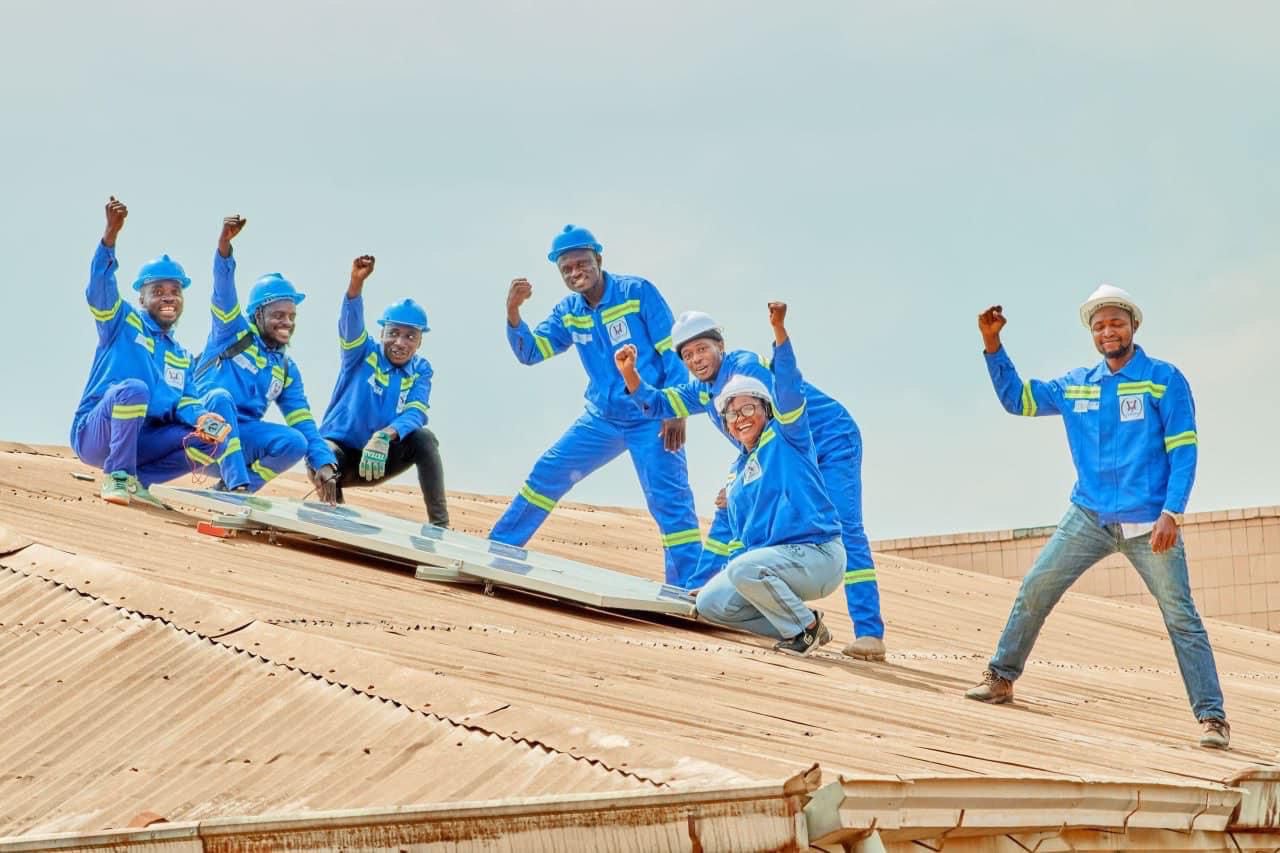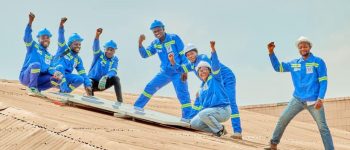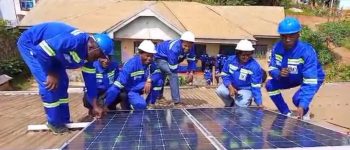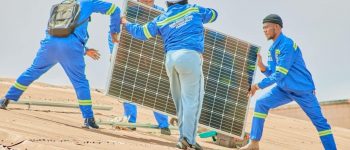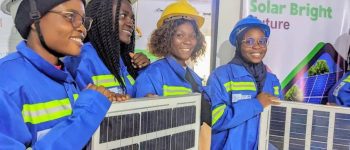The goal of this project is to address energy poverty, climate change, and youth unemployment and contribute to rebuilding crisis-affected communities by empowering 30 internally displaced youths (50% female, 50% male) aged 18-35 from Bamenda I, Bamenda II, Bamenda III, and Tubah municipalities in the North West region of Cameroon with hands-on solar energy skills in design, installation and maintenance. It focuses on including 80% Internally Displaced Persons (IDPs) and 20% host community members.
The project comprises three components:
1. Conduct a three-month technical vocational education training (TVET) for 30 IDPs on solar energy design, installation, and maintenance in collaboration with the Ministry of Vocational Training and the University of Bamenda to review and adopt the training curriculum.
2. Provide one-month field experience to 30 trainees at solar plants in partnership with Green Tech Engineering Services, and facilitate formalization and mentorship upon training completion. CAASDEV will work with the Small and Medium Size Enterprise Promotion Agency and the National Employment Fund to assist in formalization and coaching of the “solarpreneurs.”
3. Engage the 30 solarpreneurs to electrify four two-off-grid rural health center maternities in crisis-affected regions, replacing kerosene lamps and gas generators with clean solar energy systems.
project Activities
Act. 1. Organize project Inception Workshop with 25 local stakeholders.
Act. 2. Identify and select 30 trainees for the training program.
Act. 3. Collaborate with the University of Bamenda, Greentech Engineering services and the Ministry of Employment and Vocational Training to review and adopt the training curriculum.
Act. 4. Conduct a three-month TVET on solar energy design, installation, and maintenance with a one-month hands-on field experience at solar plants.
Act. 5. Award end-of-course certificates during a graduation ceremony
Act. 6. Facilitate job placement and mentorship support for solarpreneurs’ transition into professional roles in collaboration with Small and Medium Enterprise Promotion Agency and the National Employment Fund.
Act. 7. Partner with community leaders and delegation of public health to electrify 2 off-grid rural health center maternities.
Act. 8. Facilitate formalization and effective operation SOLARBRIGHT SOLUTIONS social enterprise
Act. 9. Conduct monthly monitoring and evaluation of project activities.
Act. 10.Establish an end-of-project report and disseminate best practices.
Climate sustainability
By training displaced youths in solar energy design, installation, and maintenance and Electrifying 2 off-grid health center maternities, we reduce reliance on fossil fuels and CO2 emissions, aligning with Paris Agreement goals. This supports SDG 7 (Affordable and Clean Energy) and SDG 13 (Climate Action). Our approach also aligns with Resolution 8.V of the Youth Declaration on climate change from the African Climate Summit 2023, building youth capacity in renewable energy.
projecy impact
Thirty displaced youths will be trained in solar technology, and two off-grid health center maternities electrified, benefiting over 3,000 women and children while reducing reliance on fossil fuels and cutting CO2 emissions by over 3,096 tons annually. A 30-member Solar Bright Solutions cooperative will provide solar services. Impact will be tracked by monitoring households adopting solar energy and the number of youths trained in solar technology.
We will train 30 crisis-affected youth (80% IDPs, 20% returnees, 50% female) aged 18-35 in solar system design, installation, and maintenance through a three-month hands-on program. These trained solar technicians will electrify two off-grid rural maternities, benefiting over 2,000 women and children. In addition, the youth will create "Solar Bright Solutions," a cooperative that will reinvest 15% of its profits to sustain and expand future solar skills training, ensuring long-term impact.
The project supports Cameroon’s National Development Strategy (SND 30) by enhancing local solar technology capacity and contributes to the National Renewable Energy Action Plan (NREAP, 2016) by addressing the gap in skilled personnel for the energy transition. It also aligns with the Presidential Plan for Reconstruction and Development (PPRD), involving crisis-affected youth in rebuilding efforts and promoting a greener future.
Guided by International Labour Organization (ILO) Recommendations 205 and 208, the project promotes decent work, peace, and resilience through quality apprenticeships. It supports several Sustainable Development Goals (SDGs), advancing solar energy (SDG 7), green skills (SDG 13), education (SDG 4), job creation (SDG 8), inclusivity (SDG 10), and peace through skill-building (SDG 16).
2. Green-Tech Engineering Services provides hands-on skills and mentorship.
3. The National Employment Fund connects trainees with job opportunities and funding.
4. COOPGIC aids in formalizing SOLARBRIGHT SOLUTION.
5. Rural Health Centers receive solar energy for maternities.
6. Local authorities assist in beneficiary selection and community engagement.

